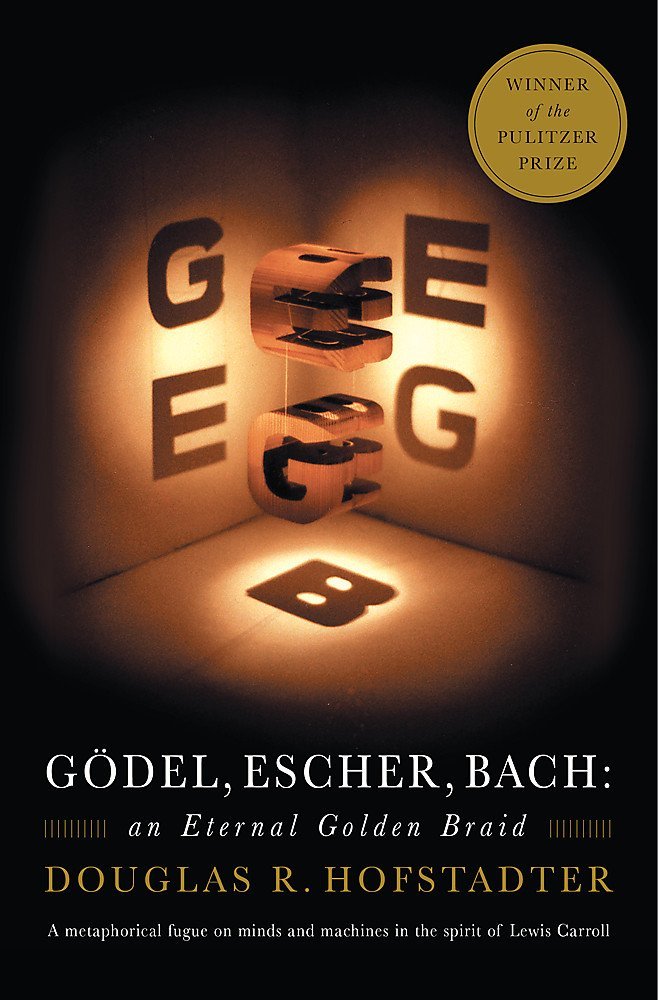Reading List: Difference between revisions
Fractalguy (talk | contribs) mNo edit summary |
Fractalguy (talk | contribs) mNo edit summary |
||
| (12 intermediate revisions by the same user not shown) | |||
| Line 1: | Line 1: | ||
A comprehensive list of books that apply to the subjects discussed on this wiki would be impossible. | [[File:Godel-escher-bach-eternal-golden-braid-douglas-hofstadter.jpg|thumb|300x300px|[[Gödel|Just read this if you haven't already.]]]] | ||
A comprehensive list of books that apply to all of the subjects discussed on this [[wiki]] would be impossible. That's called a Library. | |||
<iframe key="reads" level="www" path="goodreads-metaculture.html" frameborder="0" id="iframewin" width="100%" height=" | However, [https://www.goodreads.com/review/list/175313676?shelf=metaculture this Goodreads Shelf] lists the ones that contributed most significantly to the [[Belief System|belief system]] described here. The top 42 on the list could be considered the [[necessary prerequisites]], but really as long as you read a few books from each of the main categories described on the [[webinar series]] page you should get enough background [[information]] and ideas to serve as a foundation. | ||
A Bachelor of Science with several elective courses in [[philosophy]] and [[psychology]] is also a solid foundation. However, if that was not your [[education]], it is still possible to fill in the gaps with good books. | |||
Not a reader? The [[Podcast]] page conveys many of the same ideas in a format you can consume while driving or working out. | |||
It is safe to assume that the key ideas discussed in these books have been considered and assimilated into the body of work contained in this [[wiki]]. | |||
While many very good fiction books are not included, a few that contribute significantly to modern [[philosophical]] discourse have been. [[Science]] fiction is especially adept at exploring the [[ethical]] implications of [[Technology|technological]] advancement in a way that non-fiction writers cannot, due to the necessity of wild speculation about the distant [[future]]. | |||
<iframe key="reads" level="www" path="goodreads-metaculture.html" frameborder="0" id="iframewin" width="100%" height="600"></iframe> | |||
Latest revision as of 08:44, 20 May 2024

A comprehensive list of books that apply to all of the subjects discussed on this wiki would be impossible. That's called a Library.
However, this Goodreads Shelf lists the ones that contributed most significantly to the belief system described here. The top 42 on the list could be considered the necessary prerequisites, but really as long as you read a few books from each of the main categories described on the webinar series page you should get enough background information and ideas to serve as a foundation.
A Bachelor of Science with several elective courses in philosophy and psychology is also a solid foundation. However, if that was not your education, it is still possible to fill in the gaps with good books.
Not a reader? The Podcast page conveys many of the same ideas in a format you can consume while driving or working out.
It is safe to assume that the key ideas discussed in these books have been considered and assimilated into the body of work contained in this wiki.
While many very good fiction books are not included, a few that contribute significantly to modern philosophical discourse have been. Science fiction is especially adept at exploring the ethical implications of technological advancement in a way that non-fiction writers cannot, due to the necessity of wild speculation about the distant future.